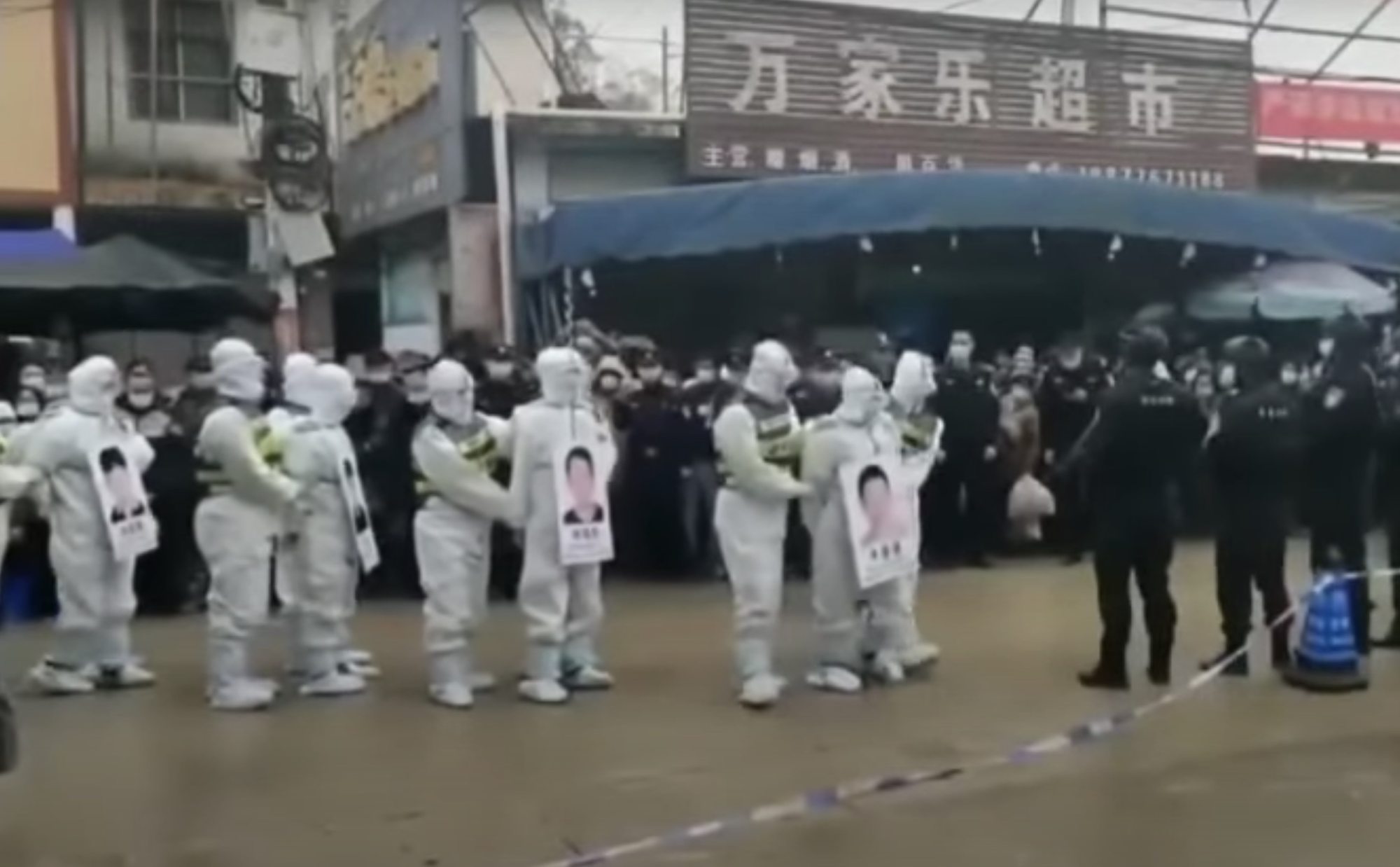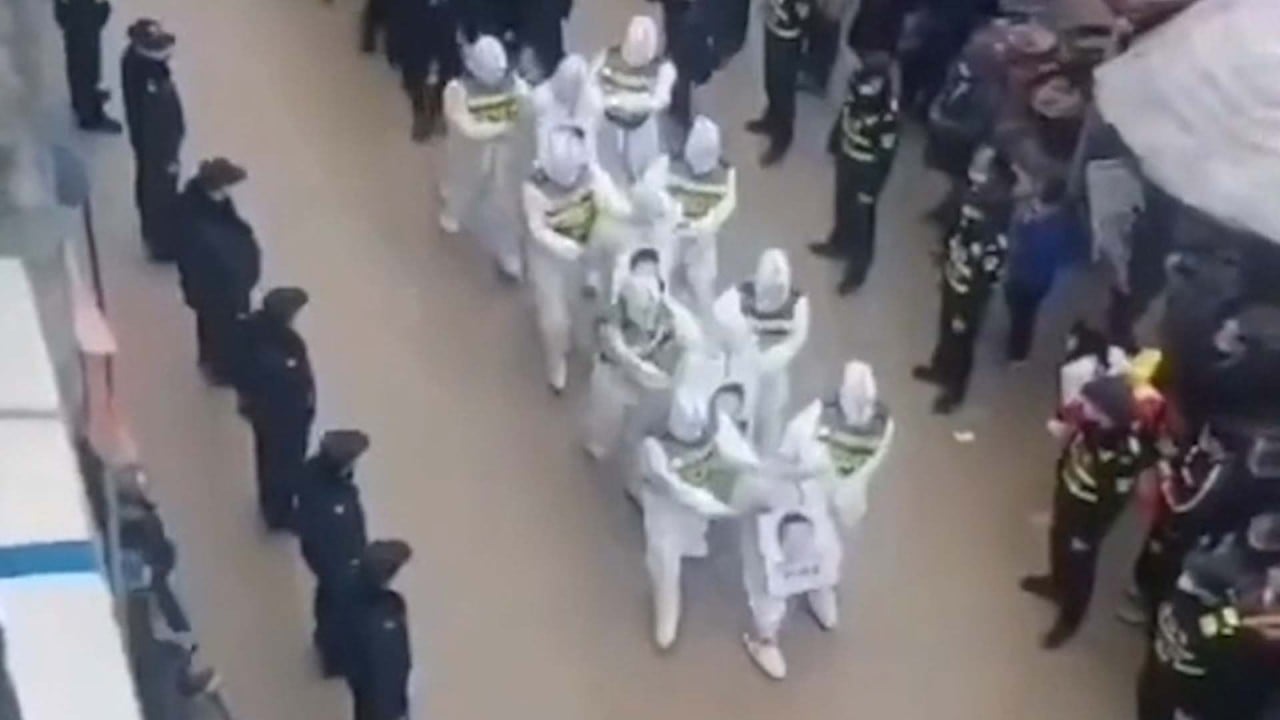
Public shame parade for human traffickers in south China draws comparisons to Cultural Revolution
- The four men were paraded through the city wearing full hazmat suits with large portraits of themselves hanging around their necks
- Local authorities appeared to double down after the backlash, saying they should be allowed to punish criminals
Local authorities confirmed the video was authentic.
While the men were shamed for smuggling people across the border, they were also used as an example of what could happen when violating Covid-19 pandemic prevention measures, Zhengguan News reported.
It’s because the city borders Vietnam, a country that has experienced Covid-19 waves but has largely outperformed the rest of the world in prevention. Jingxi, however, is under unusual pressure to contain imported cases as China sticks to its strict zero-tolerance policy towards the coronavirus.
The video generated serious attention in China on Wednesday. Many web users said it reminded them of the Cultural Revolution, the sociopolitical movement in China between 1966 and 1976 during which millions of people were publicly shamed, tortured and murdered.
Qing Zhonggui, an online commentator, wrote on Weibo: “Shame parades are bad practice used in the turbulent period which caused great damage to the country and the people,” referring to the ‘decade-long turbulence’ a commonly-used euphemism for the Cultural Revolution used on the mainland.

However, the local government in Jingxi appeared to double down on their decision. A staff member of the police in the city said it was a “disciplinary warning” that included outing personal information and telling neighbours of their alleged crimes.
Another official from the local township, where the parade happened, said: “They broke the law, and we did not do anything inappropriate. We just punished them as required.”
Public shaming has a long history in China, and the punishment reached a fever pitch during the Cultural Revolution.
Such a parade means judgment without a court hearing. It is a serious procedural violation.
There have been several attempts to ban public shaming since 1979 after a Criminal Procedure Law was passed that year.
Today, incidents of public shaming are rare, highlighted by the shock and outrage from the recent incident in Guangxi.
Deng Xueping, a Shanghai-based lawyer, said public shaming is inconsistent with the rule of law because “even when someone is convicted of a crime, he is only deprived of personal freedom, not any other rights such as privacy, portrait and personality”.
“Such a parade means judgment without a court hearing. It is a serious procedural violation,” he argued.
He said the local government’s response showed it lacked legal knowledge. “Whose requirement was this? Can any official’s requirement replace or rise above the law?” he asked.


